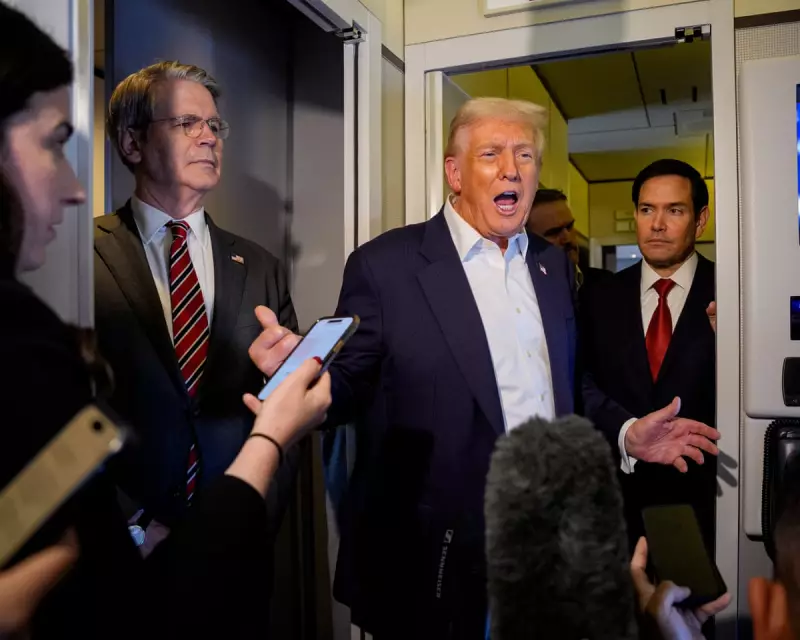
In a move that has ignited fierce constitutional debate across the United States, former President Donald Trump has floated the controversial idea of pursuing an unprecedented third term in the White House.
Constitutional Firestorm Ignited
The political bombshell emerged during recent remarks where Trump suggested he might not be bound by the traditional two-term limit for presidents. This immediately raised alarm bells among constitutional scholars and political opponents alike.
The 22nd Amendment to the US Constitution explicitly states that "no person shall be elected to the office of the President more than twice." Trump's comments represent a direct challenge to this long-standing democratic principle.
Democratic Backlash: 'No Way in Hell'
Democratic leaders responded with immediate and forceful opposition. Prominent party figures have vowed to block any attempt at a third term, with one senior Democrat emphatically stating there would be "no way in hell" such a move would succeed.
The strong language underscores the deep concerns within the Democratic party about what they perceive as a threat to American democratic norms and institutions.
Legal Experts Weigh In
Constitutional lawyers have been quick to point out the significant legal hurdles any third-term attempt would face. Most legal analysts consider the 22nd Amendment clear and unambiguous in its restrictions.
However, Trump's comments have sparked discussions about potential legal interpretations and challenges that could arise, creating uncertainty in an already volatile political landscape.
Political Implications for 2024
This development comes at a crucial time in American politics, with the 2024 presidential election cycle already underway. The third-term speculation adds another layer of complexity to an already contentious political environment.
Political strategists suggest this move could be designed to test public reaction, rally Trump's base, or distract from other political issues facing the former president.
Historical Context and Precedent
Before the 22nd Amendment's ratification in 1951, Franklin D. Roosevelt was elected to four terms, serving from 1933 until his death in 1945. The amendment was largely a response to this extended presidency.
No serious attempt to challenge the two-term limit has emerged in modern American politics until now, making Trump's comments particularly significant.
The controversy continues to develop as legal experts, political opponents, and the American public digest the implications of a potential third-term bid from the former president.





